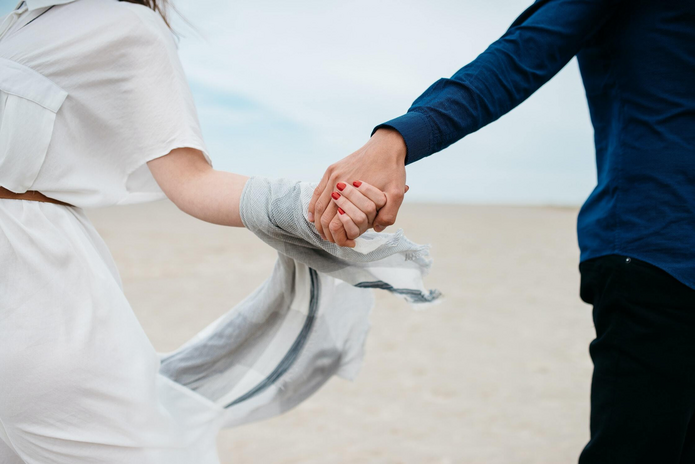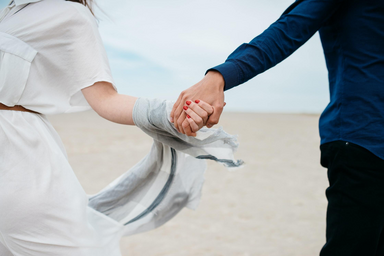In the popular queer romantic comedy “Love, Simon,” based on the book “Simon vs. The Homo Sapian Agenda,” Simon complains about the need for him to come out as gay, ruminating what a world would be like if everyone had to come out — gay or straight. That’s an interesting reality to think about, that society assumes a person is straight until society is told otherwise. It may seem fictional, but for some, it’s not so far from the truth. Lately, people have mistaken me for queer with increasing frequency, to which I am forced to correct them. To be clear, I am not claiming the experience of coming out as a straight person — that is a distinctly queer experience. However, having to admit my sexuality to complete strangers is an experience I’ve experienced recently.
While discussing my boy troubles recently (as per usual), my friend suggested dating women instead, to which I politely corrected that I am, indeed, heterosexual. They were surprised despite me never mentioning an attraction to women or any sort of queer sexual identity. I didn’t take offense to their assumption — what’s there to be offended by? They explained that because of what I study at UF, they figured I was queer, claiming, I’m too progressive for my own good.
For some context, my major is English, but I focus on queer young adult literature and read queer fiction as a personal interest. Therefore, most assume I must identify with the characters’ sexuality by also being queer. They would be wrong. It’s an easy enough assumption to make. Most of my college friends that study queer literature are themselves queer. But, because of this, I find myself in the precarious situation of having to come out as straight frequently.
When I write articles on sex and relationships, I establish my sexuality as a note to my readers to better understand my perspective. It’s important to know that my personal experience is limited but the subjects aren’t restricted to heterosexual dynamics. It’s become quite the hurdle when I flirt with men, and they ask me what I study. I usually avoid the topic, saying I study young adult fiction. Then I explain further later, clearly stating that I am indeed straight. I learned quickly that men get confused at the mention of queer studies, so it’s better to just explain later. This isn’t to say I prefer the heteronormativity entrenched in current society, simply that the increased number of queer people and transparency and advocacy for the community has drastically changed the landscape, at least my landscape. As it should.
If I’m breaking the news to men, they look relieved and excited to talk to someone still potentially into them. If I’m telling women that are queer sometimes, they look disappointed, or they just switch their approach into a friend mode. If I’m speaking to someone that wouldn’t be a potential partner, they just look confused and the natural following question is, “well, why do you study queer literature?” Good question.
Sometimes I want to respond with “because I can. It’s none of your business.” Sometimes I tell them that it’s because I think queer relationships are far more interesting than straight relationships, which I do think true – at least from a literary perspective. But the real reason is more personal than that. A relative of mine, one whom I’m very close to, is gay, and he doesn’t accept himself. He admits that he’s gay, and has relationships with men, but he doesn’t believe in LGBTQ+ rights or gay pride. It’s a contradiction that doesn’t make sense to most, but it’s who he is. It pains me to see him not like who he is, not like a part of him that is innate and unavoidable. I’d like to think that if he were exposed to queer people, real or fictional, when he was younger, then maybe he would feel differently about himself. So, writing about queer people and their experiences not only helps me better understand him but also creates more research on the topic. And isn’t more exposure, even when a straight cisgender white woman does it, better than no exposure. I don’t tell the personal reason for my interest in queer literature to most people. Although when I do, my scholarly interests make a lot more sense to them.
Perhaps the worst part of people constantly assuming I’m into women is that women hit on me – which I do admit is flattering – and then I must somehow casually mention that I’m into only men. Usually, I bring up some recent blunder I’ve had with a man, or I ask their opinion on a guy’s appearance. I find this is kinder than just saying, “Oh, yeah, by the way, I’m heterosexual.” Their faces drop, clearly disappointed, and they gradually exit the conversation to try again with some other woman they find attractive, or they stay and talk to me anyway because who couldn’t use more girlfriends. It can be an incredibly awkward social situation to navigate but what’s the alternative? To not have queer friends, avoid queer spaces or not be kind to female strangers? That seems like a sad existence.
This past Halloween weekend, while being the social butterfly I am at a party, I started a conversation with a woman dressed as Gene Kelly from “Singin’ in the Rain.” After also being hit on several times by women at the party (a partier dressed as Mia Wallace from “Pulp Fiction” was particularly flirty that evening) described the experience as being “painfully heterosexual.” Painful is correct. It’s indeed hard to let down women who truly don’t know that I’m straight, especially as a people-pleaser.
In these situations, in which people don’t know I study queer literature, people still think I’m queer. I don’t see it as an insult, but I do see it as a hindrance to my dating life. I’ve asked several friends what about me screams queer, and the responses were all over the place. Some assume my sexual identity because of my cottage-core aesthetic, including lots of bright colors, crocheted clothes and denim. Others think that because I have several queer friends then I must identify with them. And still, others just assume because I’m kind and engaging to everyone I talk to I must be interested or attracted to them all. Unfortunately, that isn’t the case, and I hate to lead anyone on, but all these qualities – my style, my friends, my nature – I don’t want to change about myself. I asked my friends because I’m curious as to what they think quantifies being queer. But, no two people, queer or not, really look alike and assuming someone’s sexuality based solely on their looks is unfair and perpetuates stereotypes. And if some guy thinks I’m queer just because of who I’m talking to or how I dress and doesn’t hit on me, then that’s not really someone I want flirting with me anyway.
Sure, it’s awkward and a little confusing having so many people think I’m into women, but does it truly matter? If I handle the situation with grace and don’t lead them on, nothing truly harmful is occurring. Frankly, the women who have hit on me do it way better than most men and are usually much more engaging conversationalists too.


